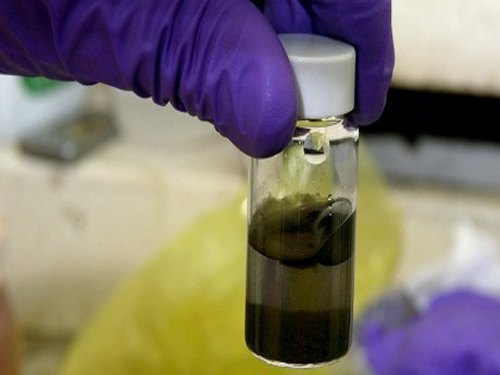
Harbin Engineering University has recently announced that the school's "Advanced Ocean Materials Collaborative Innovation Center" has developed new materials for efficient "water uranium extraction" and has attracted international attention.
The innovation center has modified the surface of certain plant fibers through esterification and polymerization, developed a sorbent with high adsorption capacity and high selectivity, and overcame the extraction technology of adsorption, desorption and separation and purification of uranium. problem.
Uranium is an important raw material for nuclear power, and China's terrestrial uranium resources are scarce. The storage of uranium resources is related to the sustainable development of nuclear power in China. The total amount of uranium in global seawater is as high as 4.5 billion tons, and it is recognized as the future of nuclear power. Compared with other marine chemical resources, the concentration of uranium resources is lower, the structure is more complex, and extraction is more difficult. Therefore, extractants or adsorbents used to extract uranium must have extremely high extraction or adsorption capacity and selectivity for uranium. The key to realizing large-scale seawater uranium extraction is to economically produce high-efficiency, high-selectivity, and stable and durable extractants. Uranium-laden uranium extraction involves multiple disciplines such as chemistry, materials, nuclear energy, and oceans. In particular, it requires marine extraction practices and separation and purification technologies. These factors make the cost of extracting uranium from seawater much higher than that of uranium on land.
Professor Wang Jun of Harbin Engineering University's "Advanced Marine Materials Collaborative Innovation Center" introduced that under the experimental conditions of simulated seawater, the adsorption capacity of the adsorbent they developed for uranyl ions was as high as 3 mg/g. Its research results have taken an important step in the extraction of uranium from seawater to the era of economy, and has drawn international attention. At present, Japan, the United States, and other countries have started earlier and have higher levels in researching uranium for seawater extraction. According to Japanese scientists, the cost of uranium per kilogram of land is 15,000 yen, and the cost of uranium per kilogram of seawater is 30,000 yen. The new materials developed by Professor Wang Jun’s team have gradually reduced the cost of uranium extracted from seawater, making it a promising source of unconventional nuclear fuel.
Triangle Tripods,Aluminium Tripods,Ellipse Tripods
Jiangsu Laiao Material Technology Co., Ltd. , https://www.jiangsulaiao.com